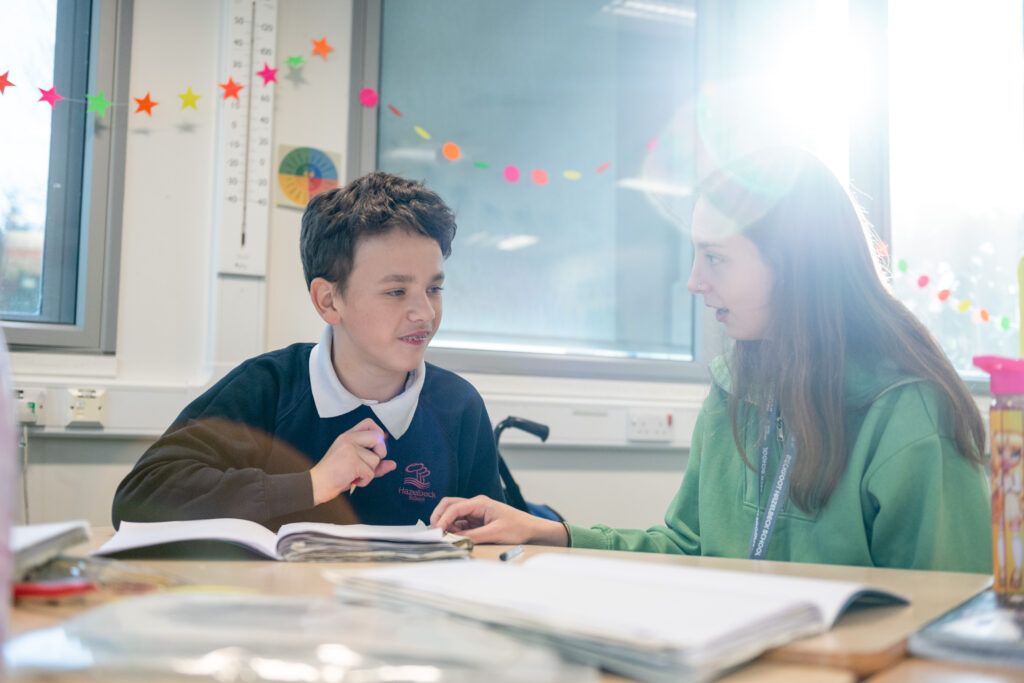Subject objectives were initially mapped specific to the needs of our learners and the knowledge they would need to succeed in their future destination, and then to ensure ambition, cross referenced against the National Curriculum/EYFS/Birth to 5. Teachers use a combination of the appropriate subject learning stage and everyone’s personal learning targets (derived from EHCP targets) to map a bespoke starting point and progression for each child.
Our definition of reading (word level)
Reading is the process of decoding symbols to derive meaning and is a form of language processing. Reading is a means for language acquisition, communication, and sharing information and ideas.
For students at Hazelbeck, this could be taught through ‘reading’ a sequence of tactile cues, photos or symbols, phonics, the Hazelbeck sight reading scheme, and functional reading, e.g., signs and symbols in the community.


Our definition of reading comprehension
Reading comprehension is the extraction of meaning from what has been decoded. For students at Hazelbeck, this could be shown through showing anticipation of an event, following a timetable, pointing to objects after ‘reading’ something, sequencing or categorising events from a ‘text’, answering questions about a text, and being able to retell what they have read.
Our definition of writing
In its simplest for, writing is ‘a medium of human communication that involves the representation of language with symbols’. However, the skills needed to write with a pencil and pen are complex and varied. Therefore, for students at Hazelbeck the way language is represented is broader and incorporates a wider range of media than simply writing with a pen or pencil. Writing may also include sequencing tactile cues, photos, or symbols, using eye-gaze to select symbols, using clicker, typing or dictating ideas for others to record.

Experiential
At these stages our learners are taught early reading, writing and communication skills daily using timetables, routines, choice making and reflection. While some activities such as sensory stories lend themselves particularly well to English lessons and allow the interleaving of different subjects within English, we promote communication at all moments throughout the day. Functional English, with a focus on recognising signs, symbols, and day to day objects in the community are taught to give young people the best chance to interact within their community.
Concrete
Discreet phonics (Read Write Inc), reading comprehension and writing sessions are taught daily for our young people working at a concrete stage and above. English frameworks that cover fiction and non-fiction texts are carefully planned to ensure lessons are sequenced to build upon key knowledge over time. Texts are carefully selected to interleave knowledge from other subject areas to further embed and support young people to generalise knowledge. For example, when looking at information books, young people who are at an Abstract stage work on identifying the differences between fiction and non-fiction and developing their ability to use technical vocabulary whilst reinforcing their understanding of internet safety though texts about the safe use of social media.
Students are given opportunities to apply their reading, writing and communication skills through accessing the community on a weekly basis.